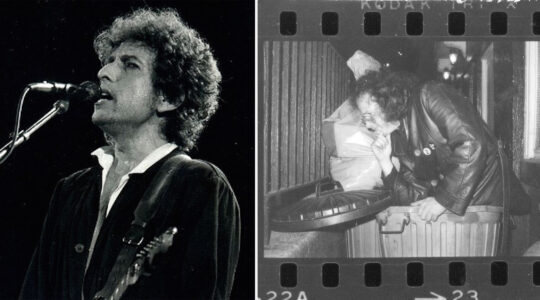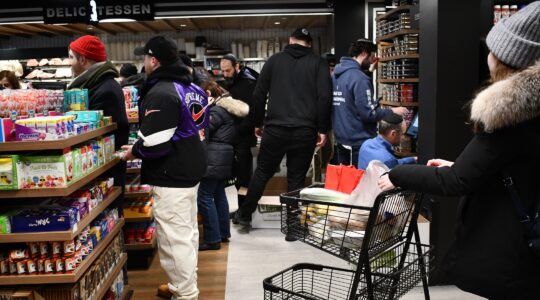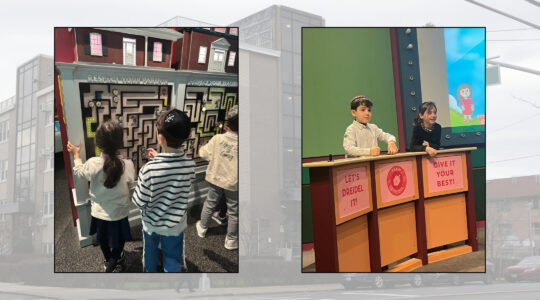Early on in Jodi Picoult’s new novel “The Storyteller” (Atria), Josef Weber comments that Sage Singer doesn’t say much in their grief support group, but when she does speak up, she’s a poet. She answers firmly that she’s no poet, but a baker.
His response — “Can a person not be two things at once” — foreshadows this story of Nazis, Holocaust victims, survivors and the second and third generations.
“The Storyteller,” which reached the top of The New York Times bestseller list just after it was published, is Picoult’s first novel to touch upon the Holocaust. She’s the author of 21 novels, many of them bestsellers including “Lone Wolf,” “House Rules” and “Change of Heart.”
“I write what I feel is the right story to tell,” Picoult says in an interview here at the beginning of her book tour last month. “This was important to me: It had its roots in big questions about good and evil. Could you do something really bad and wipe away that stain? And, and on the flip side, If you consider yourself a good person, what could tip you over to do something really bad?”
Picoult went back and reread Simon Wiesenthal’s “The Sunflower” — when he writes of being in a concentration camp and brought to the deathbed of an SS officer, who sought forgiveness from a Jew — and thought to update that.
“Genocides are happening every day. Evil is happening every day,” she says. “With so many survivors dying, it’s important that this story not get lost.”
Her story, set in a small New Hampshire town, is actually several intertwined stories, with several storytellers. Sage, the young baker, is the granddaughter of Minka Singer, a concentration camp survivor — the reader hears both of their stories (and Minka is telling Sage of her nightmarish experience for the first time), as well as that of Josef, who has buried his own secret past, and Leo Stein, who works for the FBI searching for Nazis. Josef turns to Sage, a Jew who doesn’t particularly embrace that identity, to confess his past and ask a favor, presenting her with a moral quandary.
Baking and mourning run through all of the stories: Sage is a baker who works through the night, in the shadows of her mother’s death, and she’s able to open up and speak most honestly when her hands are busy kneading dough or shaping rolls. Minka’s father was the town baker before his murder, and in her 90s she still bakes several loaves of bread every Friday in order to give it away. Every day, Josef comes to the bakery where Sage works, and shares his roll with his dog.
Picoult’s writing, unveiling and connecting these strands of stories, is energetically paced. The Holocaust is new ground for the novelist, who grew up in Nesconset, on Long Island, and lives with her husband and children in Hanover, N.H. There are no survivors in her own family, and her family didn’t grow up talking about the Shoah. “We
had a high school unit on it and that was about as much as I knew about it,” she recalls.
In her writing, Picoult is “committed to accuracy.” Her mother, who splits her time between Long Island and Arizona, helped to track down some survivors for her to interview. In order to understand the complex history, she turned to experts, including Peter Black, senior historian at the United States Holocaust Memorial Museum, and Eli Rosenbaum, director of strategy and policy for the Human Rights and Special Prosecutions Section of the Department of Justice. (Her character Leo Stein is based on Rosenbaum’s career.)
About the survivors Picoult says, “I write fiction and I can’t imagine the real stories they have lived.”
She explains that she was purposeful in making Sage a non-practicing Jew, to underscore the more universal moral responsibility.
“The Holocaust isn’t just a Jewish issue. Six million Jews were killed, but also five million non-Jews. There’s an unfortunate tendency to think this is a religious problem. It’s a human rights problem,” she says. “This is not to say that Jews don’t deserve to feel a critically important part of that history. I’m arguing that it should be a critically important part of everyone’s history.”
Picoult’s own background is Jewish but she doesn’t identify as such. She’s quick to point out, “I don’t consider myself Jewish. I grew up with parents who are Jewish. We celebrate Passover and Easter, Chanukah and Christmas, for cultural reasons and to spend time with family. That’s our personal choice.”
Did writing this book change her? “Not on a religious level,” she says. “It made me realize how lucky I am. It also recommitted me at a certain level to something I do try to do when I write: to deflect hate.”
Reflecting on the idea of forgiveness, she says, “I don’t know what I would do. I don’t know if I would do what Wiesenthal did. I support his decision. He had to make it.”
“I believe there’s something to be said for forgiveness. It allows you to let go of the hold someone else has on you. If you can’t forgive, they are still hurting you. If you can, you have the balance of power.”
For her readers, she says, “My goal is not to tell you what to think but to tell you to think about social issues.”
Picoult gets about 200 e-mails a day from readers. She answers every one of them and says that it’s “very rare that I get a question that I haven’t answered before.” One way to annoy her is to call her “a woman’s writer.” For one, she says that 47 percent of her correspondence is from male readers. She’s upset by the way fiction is categorized as literary or commercial, and that her novels, like those of many female writers, are considered to be the latter.
“This is what I know: I’m a really successful, lucky writer, I write the best book I can. I want to entertain people, and I want to educate. I don’t care if you call it literary or commercial. I just want to write the story that needs to be told.”
After beginning her career on Wall Street, she worked in textbook publishing and copywriting, taught creative writing, and then got a master’s in education from Harvard.
“I still think of myself as a teacher,” she says. “My classroom is huge.”
The New York Jewish Week brings you the stories behind the headlines, keeping you connected to Jewish life in New York. Help sustain the reporting you trust by donating today.




